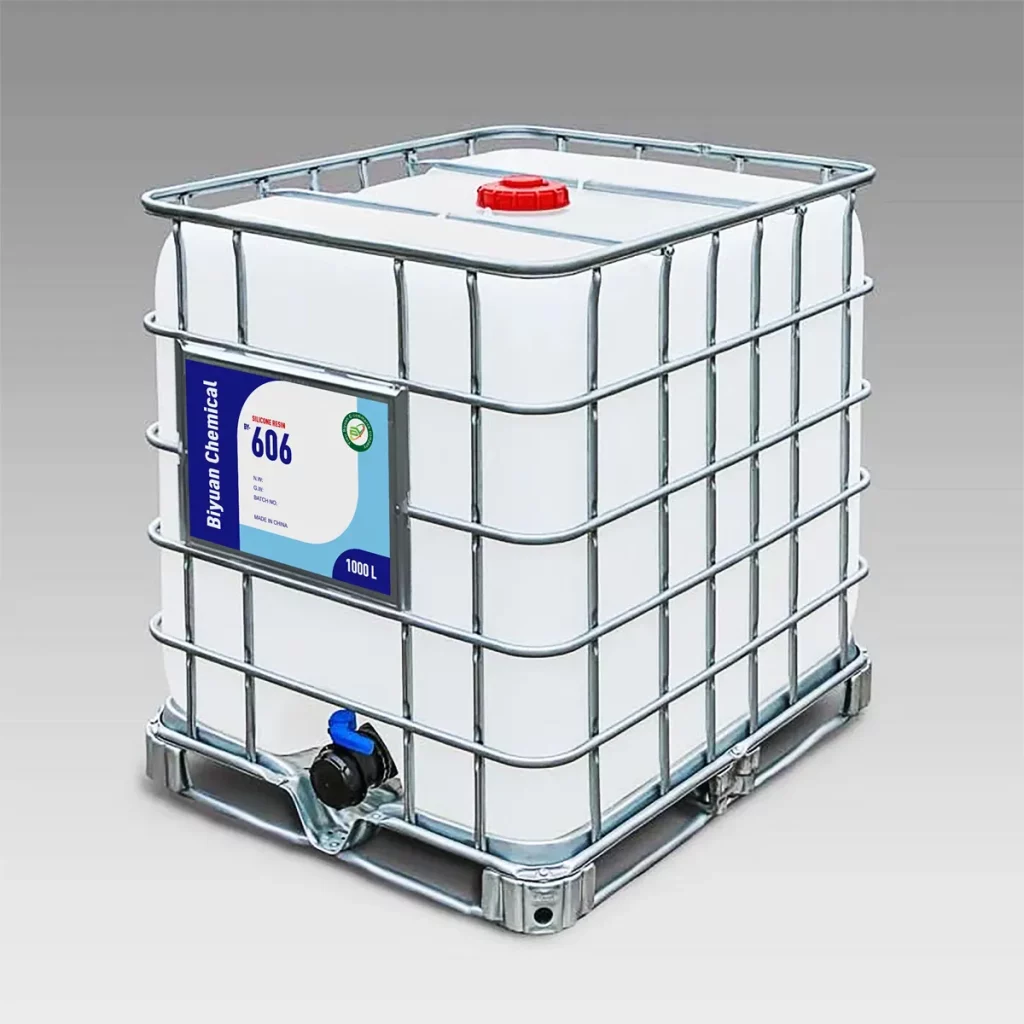SILICONE RESIN FOR RELEASE AGENT - Silicone Resin Factory&supplier
Silicone Resin
Everything you need to know about our products and company
Silicone resins transform release agent technology through their exceptional thermal stability and non-stick properties. These high-performance materials create durable, cross-linked release layers that prevent adhesion in demanding molding and casting applications.
The resins withstand temperatures exceeding 300°C while maintaining consistent release performance across countless cycles. Their chemical inertness ensures compatibility with various substrates including plastics, rubbers, and composites without contaminating finished products.
Offering both solvent-based and emulsion formulations, silicone resins provide reliable mold protection and easy clean-up while reducing maintenance downtime. This advanced release technology enables higher production efficiency and superior surface quality across manufacturing processes.
Basic Product Information
Chemical Properties
Physical Properties
Product Functions
Ensures 100% defect-free demolding of complex-shaped products.
Reduces mold wear, extending service life by 3–5x.
Leaves zero transfer residue, preserving the product’s original texture and finish.
Reusable for 50–200 cycles, minimizing downtime for mold cleaning/recoating.
Application Scope
Injection/Blow/Extrusion Molding: Silicone resin release agents enable seamless demolding of plastic products (e.g., toys, containers, pipes), ensuring smooth,
defect-free surfaces and boosting production efficiency.
Vulcanization Molding: Critical for releasing high-adhesion rubber items (e.g., tires, seals, shoe soles) without damaging molds or products.
Sand/Metal Casting: Prevents adhesion between molds and castings (e.g., auto parts, machinery components), yielding clean surfaces and reducing post-processing.
CFRP/GFRP Molding: Ensures flawless demolding in hot press molding or filament winding processes for aerospace, automotive, and sports equipment composites.

Core Advantages
| Advantages | Technical Parameters | Industry Value |
| Superior Release Performance | 50–200 release cycles (varies by process and mold material) | Reduces demolding agent usage, boosts efficiency, and lowers production costs. |
| High Thermal Stability | Withstands 150–250°C (higher for specific grades) | Compatible with high-temperature processes (e.g., vulcanization, hot press molding), expanding application scope. |
| Strong Chemical Resistance | Resists 5% H₂SO₄/NaOH (48h, no degradation) and organic solvents | Stable performance in harsh chemical environments; no reactions with molds/materials, ensuring product integrity. |
| Broad Compatibility | Works with metal, plastic, rubber, ceramic molds and plastics/rubber/composite materials | Simplifies supply chain, cuts costs for multi-material production, and enhances operational flexibility. |
| Eco-Safe Compliance | Low VOC, non-toxic, meets global environmental standards (e.g., REACH, FDA) | Safeguards worker health and complies with regulations for food packaging/medical device manufacturing. |
Market Value
Market Size & Growth Trends
Technology Trends & Market Opportunities
Conclusion
Experimental Data & Case Studies
Experimental Data
| Test Item | Test Condition | Result |
| Release Force Test | Applied to identical molds and molding materials, comparing silicone resin release agents vs. conventional release agents | 30–50% lower release force with silicone resin agents. |
| Mold Corrosion Test | Molds immersed in release agent solutions under simulated operational conditions | 40–60% slower corrosion rate with silicone resin agents. |
| Surface Defect Rate Test | Defect counts recorded under identical production processes | 20–30% fewer surface defects with silicone resin agents. |
Case Studies
Preparation Process, Core Technologies & Key Considerations
Preparation Process
Procedure:
Mix PDMS with solvent in a reactor; heat and stir.
Gradually add crosslinker and catalyst; react for 2–6 hours.
Cool and, for solid resin, remove solvent via vacuum distillation.
Core Technologies
Tailored Architecture: Adjust PDMS chain length, crosslink density, and functional groups (e.g., phenyl, vinyl) to balance flexibility, thermal stability, and release performance.
GPC (molecular weight distribution).
FT-IR (functional group verification).
TGA (thermal stability up to 400°C).
Key Considerations
Packaging & Ordering
Packaging: 200kg/1000kg plastic drums (customizable).
Our most popular products loved by customers worldwide
Silicone resins transform release agent technology through their exceptional thermal stability and non-stick properties. These high-performance materials create durable, cross-linked release layers that prevent adhesion in demanding molding and casting applications. The resins withstand temperatures exceeding 300°C while maintaining consistent release p.
Silicone resins deliver breakthrough performance in coating applications through their exceptional weather resistance and thermal stability. These advanced materials form durable, protective networks that maintain integrity under extreme environmental conditions, including prolonged UV exposure and temperatures ranging from -50°C to 300°C. Meeting inter.
Silicone resins significantly enhance plastic and rubber products through their unique cross-linking capabilities and surface modification properties. These high-performance additives improve thermal stability, weather resistance, and processing characteristics across various polymer systems. Meeting international industry standards, silicone resins off.
Silicone resins deliver exceptional thermal stability (up to 400°C) and mechanical strength to composite materials. These high-performance resins improve processing efficiency while enhancing electrical insulation and flame retardancy. Compatible with organic and inorganic fillers, they ensure uniform distribution and strong interfacial adhesion. The re.